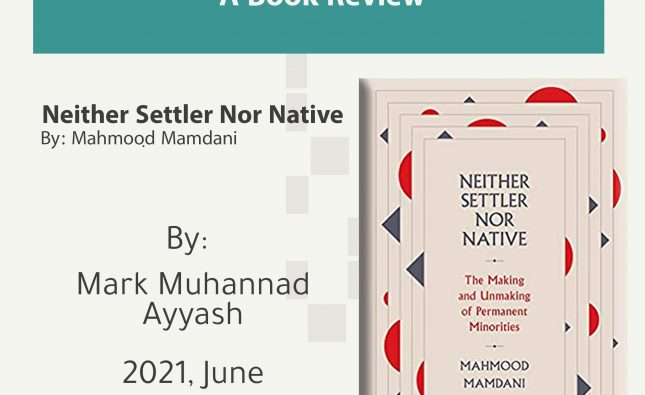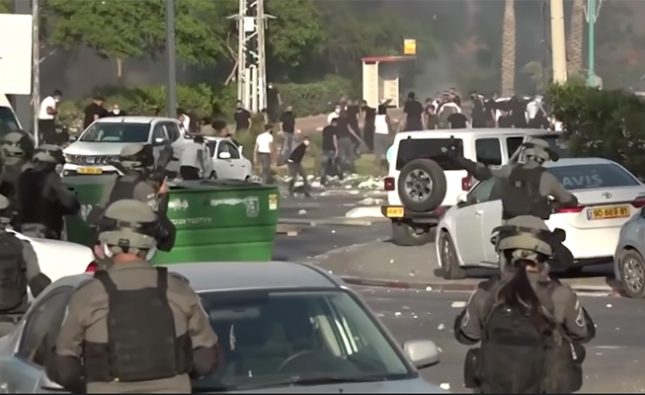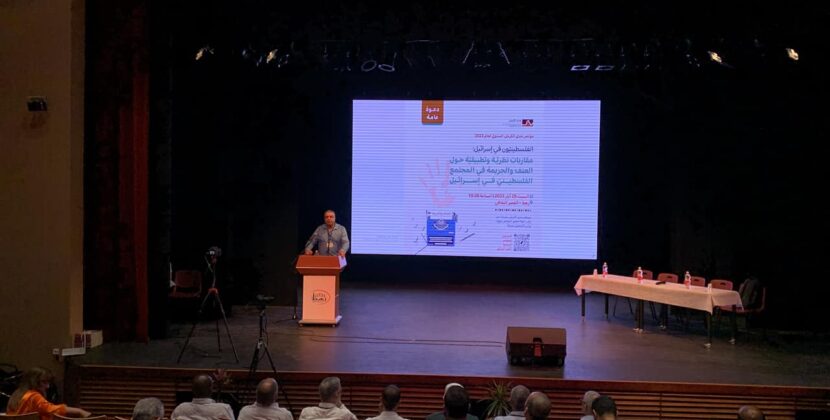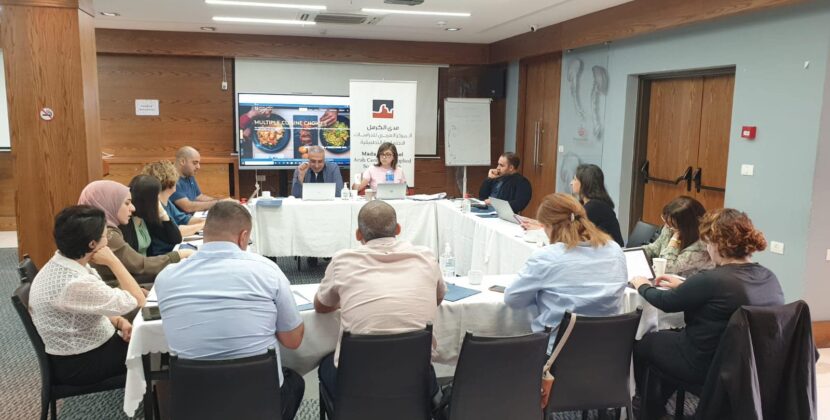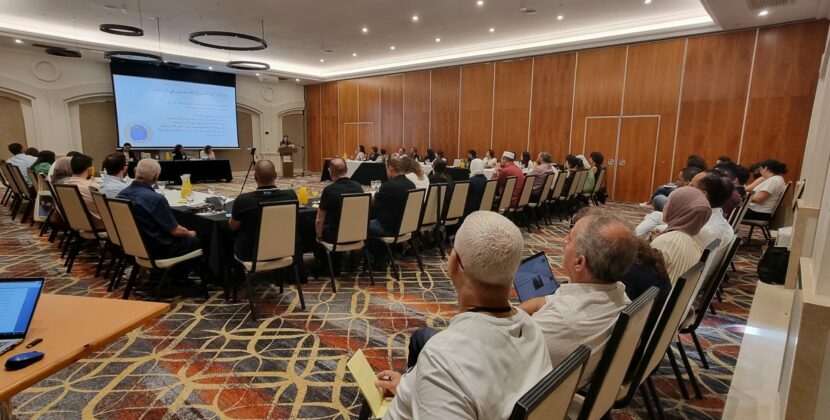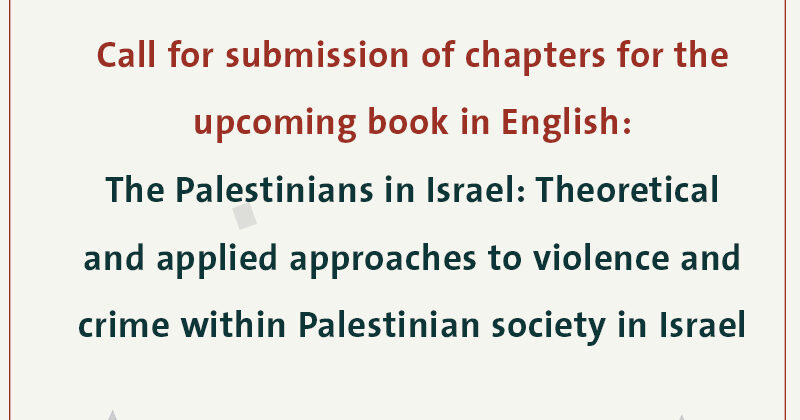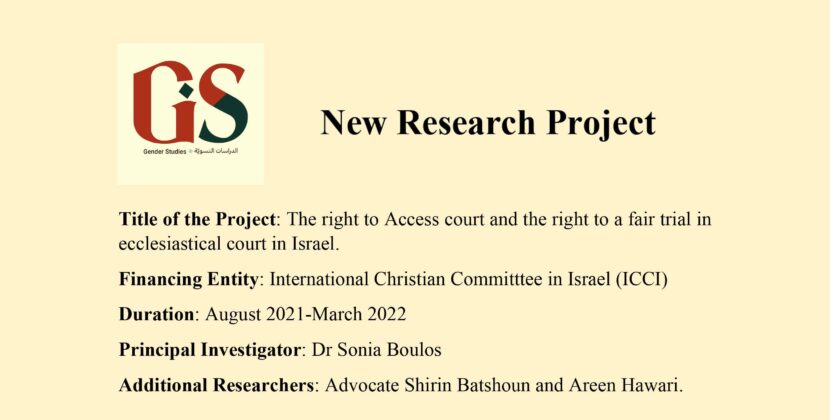The fourth workshop, held in Ramallah on July 29-30, 2016, dealt with the Palestinian National Movement’s reading of Zionism. In its opening, Professor Nadim Rouhana  stressed the importance of returning to the settler colonial framework in the approach to Zionism and the conflict with it. He pointed out that Palestinian political thought has historically viewed Zionism as a colonial project, but that the shift towards the state project, especially after 1974, led to a political turning point in dealing with the conflict. It became presented as a struggle between two groups vying for the same homeland, in parallel with Israel’s continued settlement activities in the occupied territories in 1967 and also within the Green Line.
stressed the importance of returning to the settler colonial framework in the approach to Zionism and the conflict with it. He pointed out that Palestinian political thought has historically viewed Zionism as a colonial project, but that the shift towards the state project, especially after 1974, led to a political turning point in dealing with the conflict. It became presented as a struggle between two groups vying for the same homeland, in parallel with Israel’s continued settlement activities in the occupied territories in 1967 and also within the Green Line.
In the beginning, before dealing with the Palestinian National Movement, Professor Ilan Pappe, director of the University of Exeter’s European Centre for Palestine Studies and a member of the Middle East Humanities research cluster, presented the introductory lecture on Zionism. He said that Zionist settler colonialism is a path and not a structure, therefore it is difficult to find its properties, rather we must look at the logic that motivates the project, which is the logic of genocide linked to the logic of demonization of the locals.
Mr. Daoud Talhami gave a lecture on the regional surroundings and combatting Zionism. At the outset, he said that in spite of the fact that the Palestinian people are the first victims of the Zionist project, the latter also targets the Arab and non-Arab surroundings, through its inherent geographic expansion. However, the most dangerous aspect of this project, is the regional imperialist role played by the Zionist state in the region.
 The third lecture was given by Professor Samih Hamouda from the political science department at Birzeit University. He said that the Islamic trend, like the Palestinian Liberation Organization (PLO) trends, suffers from a weakness in theorization and methodological thinking. Then he argued that Hamas’s discourse mixes between the religious and political, viewing the Jews in essence, while the Islamic Jihad does not view Zionism as an extension of the Jewish groups in history, but as organically linked to colonialism.
The third lecture was given by Professor Samih Hamouda from the political science department at Birzeit University. He said that the Islamic trend, like the Palestinian Liberation Organization (PLO) trends, suffers from a weakness in theorization and methodological thinking. Then he argued that Hamas’s discourse mixes between the religious and political, viewing the Jews in essence, while the Islamic Jihad does not view Zionism as an extension of the Jewish groups in history, but as organically linked to colonialism.
This was followed by a lecture on the Israeli Communist Party, given by Mr. Abdel-Latif Hussari, a member of its intellectual department. He still sees the party as an important component of the Palestinian liberation movement. He said that the party’s ideological roots appeared as a combination of thought of immigrants who arrived in Palestine with Marxist ideas in parallel with communists who grew up in the Palestinian city. He also mentioned the various divisions then the unity among the party, such as the split between Arabs and Jews in 1943, and the formation of the National Liberation League, because the Arabs rejected the parallelism between the nationalism of a movement struggling against oppression and the nationalist tendencies of a nation practicing oppression.
The first session on the second day was a reading of the national movement inside Israel of Zionism, presented by Dr. Mohanad Mustafa, a lecturer at the College for Academic Studies and a researcher at Mada al-Carmel. Dr. Mustafa argued that political Islam inside Israel approached Zionism from a historical perspective through the wide Islamic paradigm in all its components. The national movement, on the other hand, approached Zionism from an ideological perspective relating to its colonial project in Palestine, without marginalizing its relationship, i.e. Zionism, with the overall colonial project in the Arab region.
The next session was on the Israeli Communist Party and its approach to Zionism. This session was given by Dr. Mahmoud Muhareb, lecturer at Al-Quds University/Abu Dis, on the emergence of the Communist Party in the ranks of the Jewish settler movement and not the indigenous population. Dr. Muhareb said that the Arabs were admitted to the party, at the request of the leaders of the Communist International (Comintern), but the party, sentimentally, was close to the settlement project, and spoke on behalf of the Jewish proletariat. On the other hand, Zionist practices and its alliance with colonialism were one of the factors that distanced the party from Zionism.
Speaking in the final session, which was entitled identity and the Palestinian narrative under Zionism, were two members of the workshop on their research. Heba Yazbek, a doctoral student in sociology at Tel Aviv University, spoke about the displaced inside the Green Line and how they tell their story. Dr. Manar Makhoul, coordinator of the political monitoring project at Mada al-Carmel, spoke on the development of identity inside Israel under Zionism, through the review and analysis of more than seventy Palestinian novels written inside the Green Line.
At the end of each lecture, there were comments and room for discussion by several dignitaries, including Palestinian political leaders such as MK Haneen Zoubi; Mr. Walid Taha, a member of the regional political bureau of the Islamic Movement; and lecturers including Dr. George Giacaman of Birzeit University.






